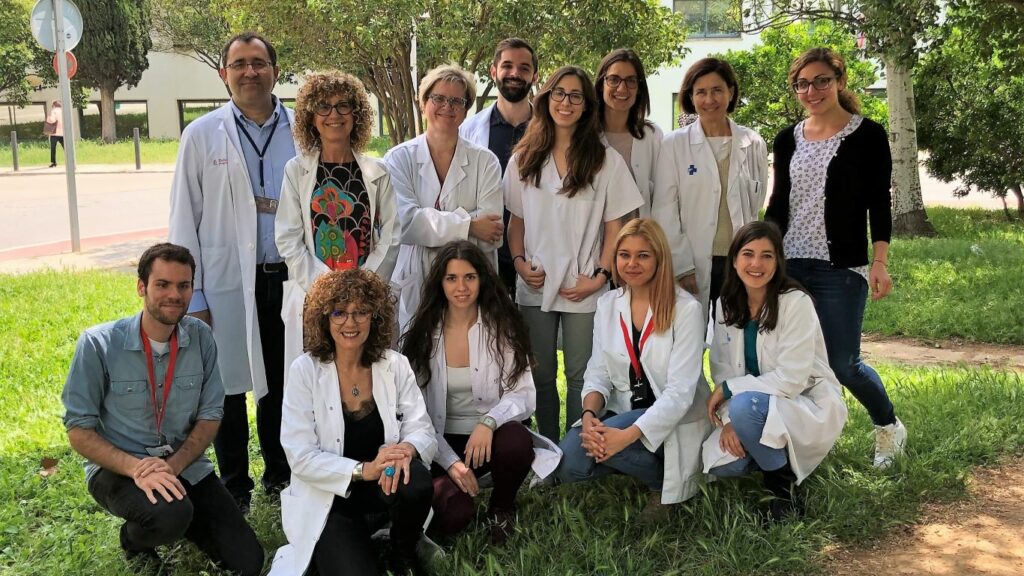The psychoneurobiology of eating disorders and addictive behaviors research group at IDIBELL, Bellvitge University Hospital and CIBERobn, with the collaboration of IMIM, has studied the relationship between blood concentrations of two neurotransmitters of the endocannabinoid system, anandamide (AEA) and 2-arachidonylglycerol (2-AG), with clinical variables and body mass index (BMI) in a group of patients with extreme clinical weight conditions, specifically, obesity and anorexia nervosa.
The results, published in the journal European Psychiatry, show significant differences in the concentration of AEA between the different groups. In the case of 2-AG, its increase is only correlated with lower BMI in the anorexia nervosa group, which, in turn, has been associated with the severity of the disorder. Regarding AEA, its increase was observed in the obesity groups – both with and without EDs – compared to the anorexia nervosa and control groups. Likewise, increased AEA seems to indicate more extreme BMI values, lower in cases of anorexia nervosa, and higher in cases of obesity. Consequently, these findings evidence the involvement of endocannabinoids in abnormal eating behavior, weight alterations and psychopathological traits, which could represent a possible therapeutic target.
The endocannabinoid system
As explained by two of the IDIBELL researchers, Isabel Baenas and Romina Miranda-Olivos, “in recent decades, the endocannabinoid system has been shown to be a biological factor involved in the pathogenesis of extreme clinical weight conditions, given its modulating role in eating behavior, energy metabolism, and food-related reward processing.” This system is composed of endogenous ligands called endocannabinoids, cannabinoid receptors and the enzymatic machinery in charge of their synthesis and degradation.
Fernández-Aranda clarifies that “despite the limitations of the study, such as the population consisting only of women seeking treatment, or the lack of variables such as hormones, medication or physical exercise, these results represent a beginning in the analysis of the complex interactions between endocannabinoids and psychological variables in extreme clinical conditions of weight”.
Adaptation from CIBEROBN
The Bellvitge Biomedical Research Institute (IDIBELL) is a biomedical research center created in 2004. It is participated by the Bellvitge University Hospital and the Viladecans Hospital of the Catalan Institute of Health, the Catalan Institute of Oncology, the University of Barcelona and the City Council of L’Hospitalet de Llobregat.
IDIBELL is a member of the Campus of International Excellence of the University of Barcelona HUBc and is part of the CERCA institution of the Generalitat de Catalunya. In 2009 it became one of the first five Spanish research centers accredited as a health research institute by the Carlos III Health Institute. In addition, it is part of the “HR Excellence in Research” program of the European Union and is a member of EATRIS and REGIC. Since 2018, IDIBELL has been an Accredited Center of the AECC Scientific Foundation (FCAECC).

